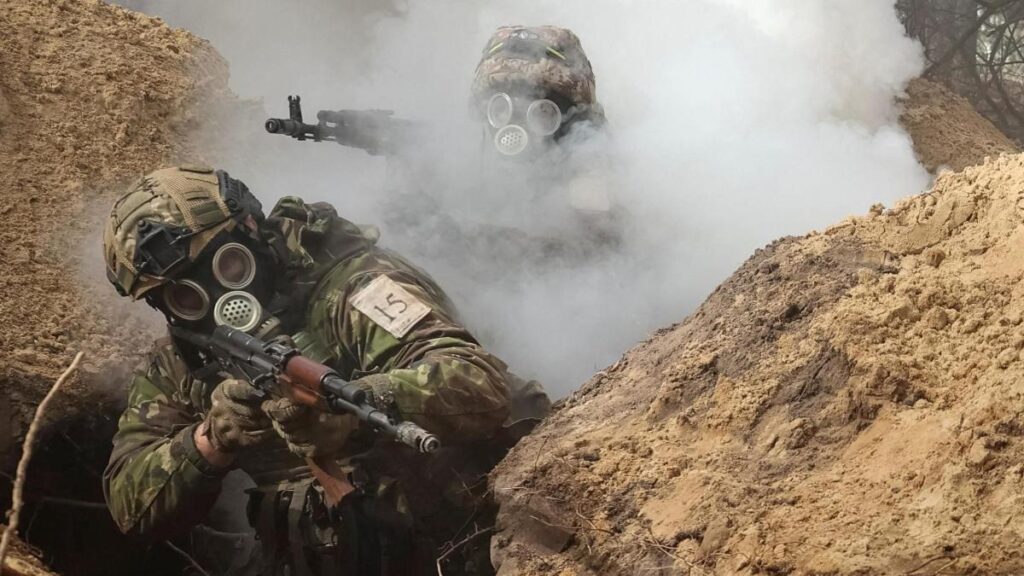The UK government has recently imposed sanctions on Russian soldiers alleged to have employed chemical weapons on the battlefield in Ukraine. This measure targets the Radiological Chemical and Biological Defence troops of Russia, along with their commander Lt Gen Igor Kirillov, who will face an assets freeze and a travel ban. Additionally, two scientific laboratories belonging to the Russian Ministry of Defence have been designated under these sanctions. The UK Foreign Office has accused Kirillov of being a key figure in spreading Kremlin disinformation, further complicating the geopolitical landscape surrounding the conflict.
Foreign Secretary David Lammy asserted that the UK will not remain passive while Russian President Vladimir Putin and his government violate international laws, including those outlined in the Chemical Weapons Convention. He described Russia’s use of chemical agents as “flagrant,” “cruel,” and “inhumane,” emphasizing the UK’s commitment to combating such malign activities with all available powers. This robust stance reflects the growing concern among Western nations regarding the ongoing use of prohibited methods of warfare in the Ukraine conflict.
In conjunction with these sanctions, Defence Secretary John Healey issued a strong warning to Putin and his regime, stating that breaking international law would inevitably result in consequences. He highlighted that the two Russian Ministry of Defence centres were sanctioned for their role in the development and deployment of chemical weapons which are being utilized on the front lines in Ukraine. Moreover, Healey noted that the UK is actively providing essential equipment and training to Ukraine to safeguard its citizens against potential chemical attacks.
The United States has previously accused Russian forces of employing chemical agents in Ukraine as a method of warfare, which they argue is a violation of international laws prohibiting such acts. In May, State Department officials claimed that Russia utilized the choking agent chloropicrin to gain tactical advantages on the battlefield. The Kremlin, however, has refuted these allegations, labeling them as “baseless” and maintaining that such accusations have no merit.
The Organisation for the Prohibition of Chemical Weapons (OPCW) defines a chemical weapon as any substance intended to cause harm or death through its toxic properties. Chloropicrin, cited by the US as a chemical weapon used by Russian forces, is known to cause severe irritation to the lungs, skin, and eyes, potentially leading to vomiting and other debilitating symptoms. Historically used during World War One, its deployment in modern warfare is expressly forbidden under the Chemical Weapons Convention, as it is classified as a choking agent by the OPCW.
Furthermore, US officials have reported that Russian troops have routinely deployed riot control agents, including tear gas, during the conflict in Ukraine. This pattern of behavior underscores the severity of the allegations against Russian forces and raises significant international concerns about the ongoing use of chemical weapons in the region. The situation illustrates a critical juncture in the continuous strife, where international law is being challenged, and the humanitarian impact on the Ukrainian populace is profound and dire.

